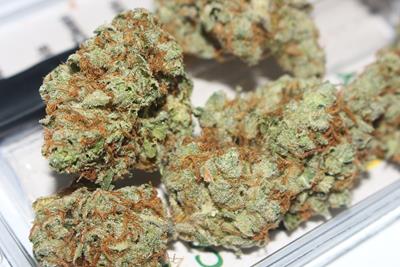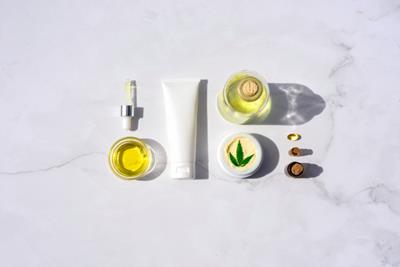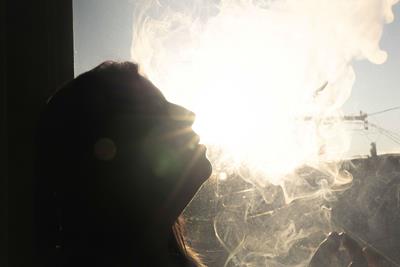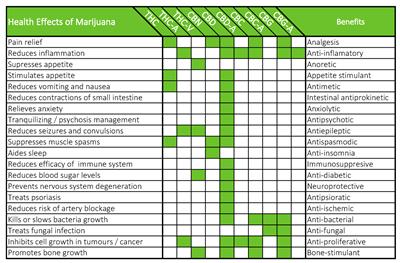
Friday October 30, 2020
By Paul Barach
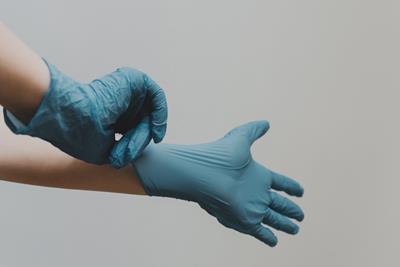 Health/Science
Health/Science
The most obvious effects of the Coronavirus pandemic are plastered all over the headlines. However, tucked in here and there are news articles about the smaller impacts on consumers' lives. Besides the great toilet paper panic of mid-March, there have been more distinct shortages affecting specific groups. For home cooks, it’s yeast. For pale people, it’s aloe vera. For pot smokers looking to spring clean (or summer clean) their glassware, many have been shocked to find that isopropyl alcohol is out of stock nationally.
“Why can’t I find isopropyl alcohol anywhere?” you may be asking. “Are there any other ways to clean my favorite glassware, or am I going to be stuck with a gunked-up piece until this pandemic is over?” Luckily, there are plenty of methods for cleaning even the most gunked-up piece without using isopropyl alcohol. That’s why PotGuide is here to help you restore your glassware to its original, pristine condition so that you get the full flavor of every bowl you smoke during this trying time. But first, how did we get to a national isopropyl shortage in the first place?
Understanding the Isopropyl Alcohol Shortage
Isopropyl alcohol, aka “rubbing alcohol,” is a common form of disinfectant familiar to anyone who’s needed to sterilize a metal surface or had a scraped knee as a child. Its high alcohol content kills nearly all germs, bacteria, and viruses that it comes in contact with. Despite the fact that the US manufactures more isopropyl alcohol than any other country on earth, the coronavirus pandemic has led to a shortage of isopropyl alcohol, alcohol wipes, and other medical grade disinfectants.
The main reason for this, as it was with the toilet paper shortage, is US consumers panic buying more than they need. Once coronavirus hit the headlines as a dangerous pandemic, everyone rushed out to stock up on hand sanitizer, wipes, and other disinfectants. Once those left the shelves, people began panic buying isopropyl alcohol and aloe vera in order to make their own hand sanitizer and home-made disinfectants. Hand sanitizer production ramped up nationally and bottles of it returned to the shelves in record time. However, because many factories that make isopropyl alcohol are running at lower production levels due to the pandemic, demand is still outstripping supply.

Cannabis consumers should count themselves lucky that their main issue with the isopropyl alcohol shortage is a clogged pipe. This particular shortage has caused enormous problems for diabetics and other patients dependent on IV medicine, who swab rubbing alcohol onto their injection sites to prevent infection. If you find yourself with extra isopropyl alcohol, please donate it to your local diabetic or medical charity.
The good news is that isopropyl alcohol is relatively easy to manufacture and should return to store shelves in the near future. However, that doesn’t help the average cannabis smoker in need of a clean piece today.
Ways to Clean Pipes and Bongs Without Isopropyl Alcohol
So, without isopropyl alcohol, how can you make sure your glassware is clean so that you can fully enjoy the weed that is helping you get through all this craziness? There are several tried and true methods that are about as easy as isopropyl alcohol.
PLEASE NOTE: For all of these methods, and whenever a substance touches your glass that isn’t weed, water or fire, it is best to give it a thorough rinse with water after cleaning to remove any and all residue before smoking.
White Vinegar and Coarse Salt
It’ll take a little more work than with isopropyl alcohol, but white vinegar’s acidity and coarse salt’s abrasive surface will clear the built up tar and resin from your glassware just as well. Pour some coarse salt into your piece, then add the vinegar, plug the holes, and shake it up to break it up (the resin, not the piece.)

It’s best to leave your piece soaking in the mixture beforehand either in a plastic baggie or tupperware. You might have to repeat the process a few times, and then use a pipe cleaner or an unrolled paper clip to get the more caked-on gunk out. Wash it under warm water in the sink to clear your piece out afterwards.
Baking Soda and Vinegar
While you may be more familiar with this combination from adding them together into your volcano diorama for the elementary school science fair, baking soda and vinegar are also a potent cleaning combination. The baking soda acts as an abrasive, so be sure to add that first and give your piece a scrub with a pipe cleaner or sponge.

Then, add the vinegar and some hot water, let it bubble up and soak for a while, then shake your piece like you’re making a martini in it. Use some more pipe cleaners or unravelled paper clips if you got them to clean out the more stubborn resin patches and you’re good to go after a rinse in the sink.
Boiling Water
Tar and resin will melt down with heat, which is how they got into your piece in the first place, and what causes all that dirty bong water. Because of this, sometimes boiling your glassware is the best way to thoroughly flush them back out. As long as it’s a sturdy pipe or bong and not an extra-extravagant glass piece, it should handle the heat without cracking. Fill a saucepan with water and place it on your burner. You can also add vinegar to the mix to dissolve the resin even faster.
Gently place your piece in the water as it’s warming up so the temperature change doesn’t crack the glass.
Bring the water to a boil and then lower it to a simmer. In an hour or so the water should resemble herbal tea. Gently pick up your piece (careful! It may be hot) and swish it around in the water to dislodge any remaining plugs, then wash it in the sink under warm running water and you should be good to go.
You’ll want to be extra careful with this method, as obviously, boiling water can burn you. More than that, as mentioned above, don’t put cold glass directly into boiling water, as cracking may occur.
Powdered Brewery Wash

Developed by Coors, powdered brewery wash (Often referred to as PBW) is an alkali cleaner designed to break up clogs in brewers tanks and clear build up in fluid lines. If it can handle the clumped yeast, sediments, and other debris common to the brewing process, it can handle the resin in your piece. It’s readily available online from numerous sellers at a low cost, and it goes a long way. Simply add some powdered brewery wash powder to some warm water and let your glassware soak overnight. The next day your piece will be ready to use after a quick wash out under running water. Powdered Brewery Wash is environmentally friendly, biodegradable, effective, cheap, and safe to use (remember, its primary use is in the food and beverage industry). Sometimes PBW can leave a slight soapy residue after washing, so again, just be sure to give it a thorough rinse when you’re done cleaning..
Vodka/Grain Alcohol
Just because you can’t find isopropyl alcohol on the shelves doesn’t mean all the alcohol is gone (there would be riots in the streets if that were the case). If your heart is set on the tried-and-true alcohol/salt cleaning, then simply swap in some cheap grain alcohol for your traditional isopropyl alcohol. For thicker build-ups of gunk, grain alcohol is your best bet because of the higher alcohol percentage and lower sugar content, but vodka will work in a pinch. Soak your pipe in an alcohol/salt mixture in a bag or a tupperware container, then shake it and proceed as normal. With either choice, be sure to give your rig an extra good rinsing after, to make sure no remnants of sugar or other non-alcohol tidbits remain.
Denture Cleaning Tablets

While you may not live with elderly relatives, denture cleaning tablets are pretty easy to find in any pharmacy and some grocery stores. Place your pipe in some hot water and drop the tablets in. They’ll start fizzing up, which means they’re going to work. Much like the vinegar/baking soda/salt techniques, this one is another soak/shake/scrub kind of operation. Your mileage may vary on this last one, but especially for mild build-up, it’s worth a try.
Last Thoughts
There’s no reason to let the isopropyl alcohol shortage stop you from smoking out of the clean, clear piece that you deserve. With a little ingenuity and effort, your glassware can be cleared out in no time. Who knows, you may come out of this pandemic with a new favorite method for restoring your piece back to the factory setting.
How have you been cleaning your bongs, rigs and pipes during the isopropyl alcohol shortage? Share your experiences in the comments below
Photo Credit: Clay Banks (license)





